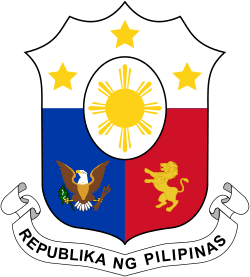Sitio
 |
| This article is part of a series on the politics and government of the Philippines |
|
|
Politics portal |
A sitio in the Philippines is a territorial enclave that forms part of a barangay. Typically rural, a sitio's location is usually far from the center of the barangay itself and would be its own barangay if its population was high enough. Sitios are similar to puroks but the latter are more urban and thereby closer to the barangay's center, especially the barangay hall.
During the Spanish colonial period, the colonial government employed the Reducción policy, allowing the remapping of various settlements. Several far-flung hamlets were identified, named and organized into "sitios" so that municipalities and cities could more easily govern through the barangay system, then known as the barrio system.[1][2] The sitio does not have administrative function; it is purely organisational.
See also
References
- ↑ Abinales, Patricio N.; Amoroso, Donna J. (2005). "New States and Reorientations 1368-1764". State and Society in the Philippines. Lanham, Md.: Rowman & Littlefield. pp. 53, 55. ISBN 0742510247. Retrieved 15 January 2015.
- ↑ Alas, José Mario “Pepe”. "28 July 1571: The Foundation Date of the Province of La Laguna". Academia.edu. Retrieved 15 January 2015.
| ||||||||||||||||||||||||||||||||||||||||||||||||||||||||||||||||||||||||||||||||||||||||||||||||||||||||||||||||||||||||||||||||||||||||||||||||||||||||||||||||||||||||||||||||||||||||||||||||||||||||